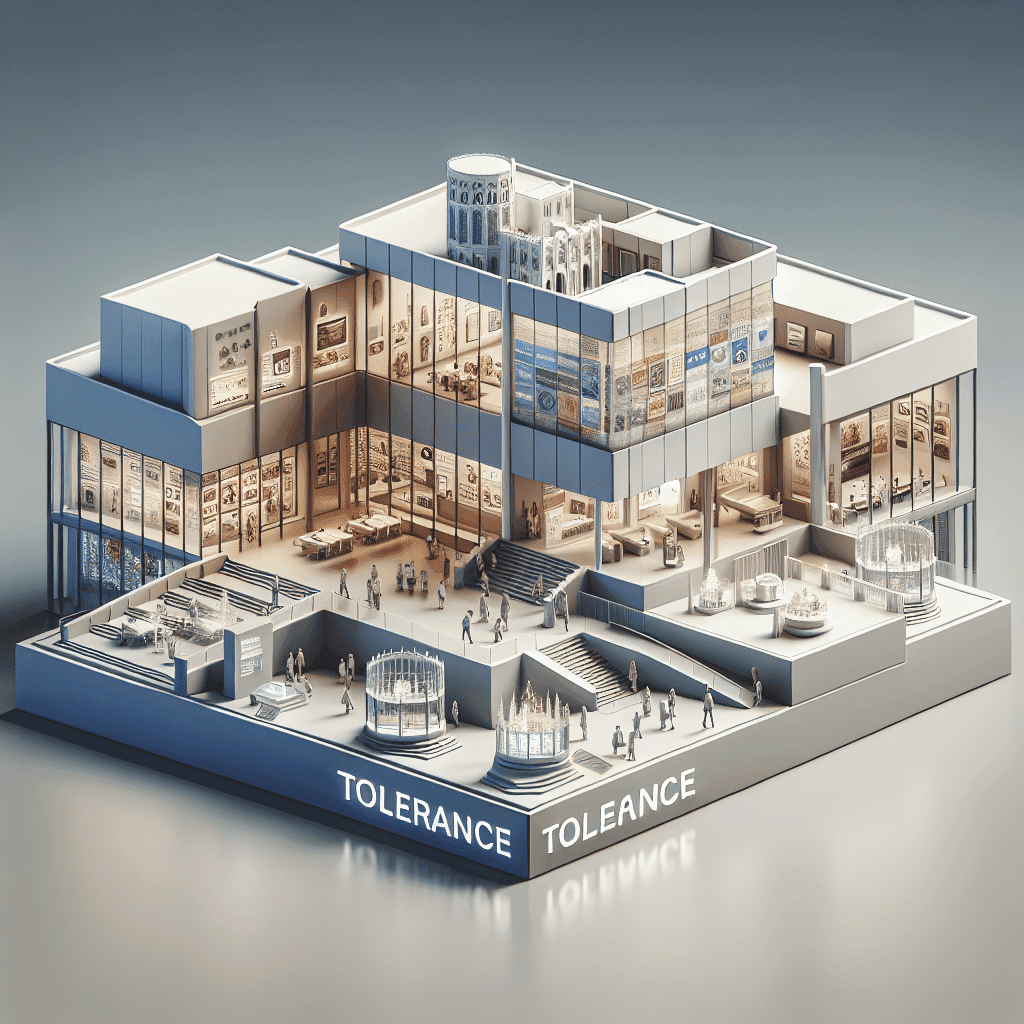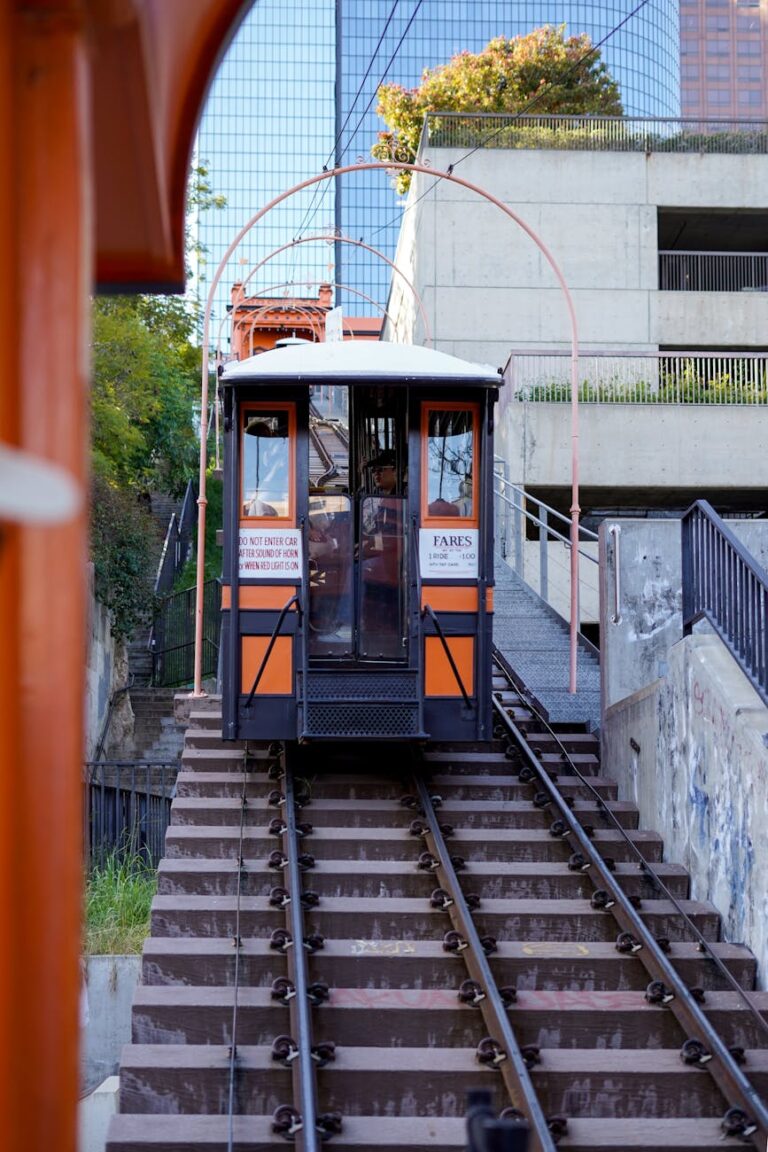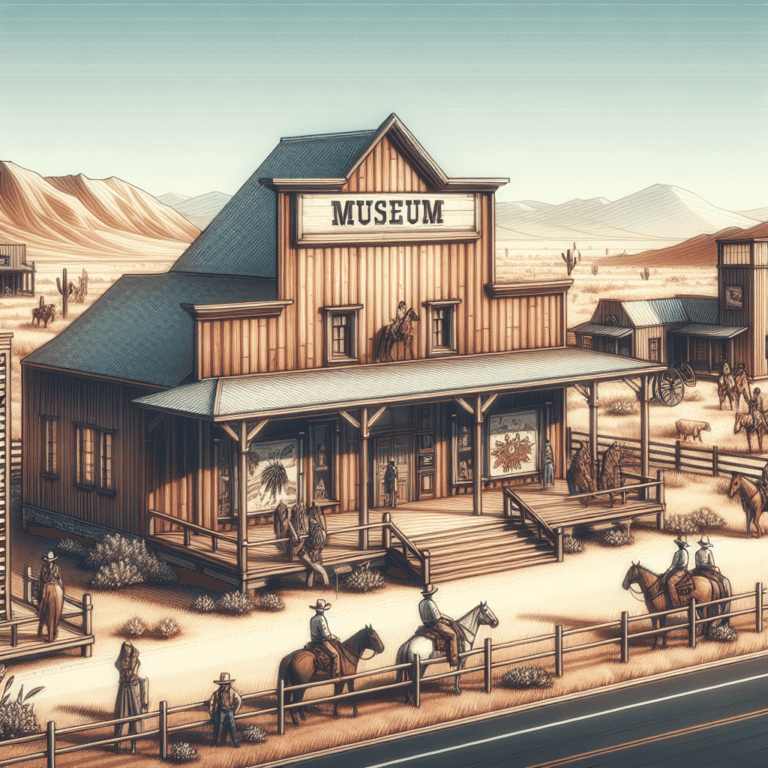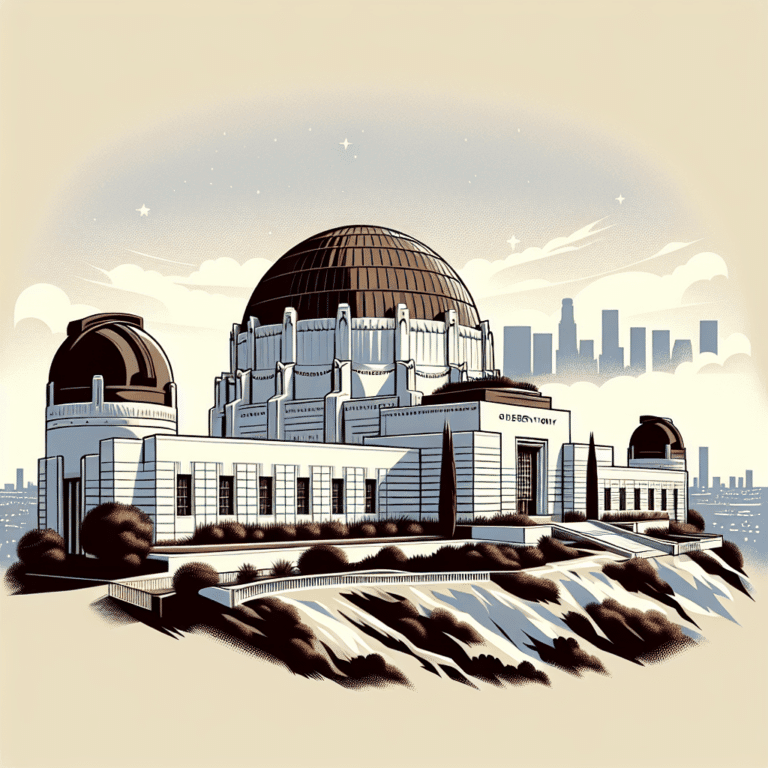The Museum of Tolerance Review
Discovering the Museum of Tolerance
Unveiling a Monument of History
My journey to the Museum of Tolerance (MOT) was nothing short of inspiring. Established in 1993, this unique institution serves as the educational arm of the Simon Wiesenthal Center. Its mission is to challenge visitors to understand the Holocaust within both historical and contemporary contexts while confronting all forms of prejudice and discrimination in our world today. This place is not just an ordinary museum filled with artifacts; it functions as a human rights laboratory and educational center dedicated to promoting tolerance and understanding (Museum of Tolerance).
The museum was created in response to a troubling trend I discovered in the late 1980s: a new generation of young people began questioning whether the Holocaust ever happened. I found it essential to immerse myself in a space designed to confront these misconceptions and encourage visitors from all backgrounds to take responsibility for change (Museum of Tolerance).
In just a few short months after opening, the MOT garnered acclaim from both national and international leaders, establishing itself as a “must-see” attraction in Southern California. I could feel that excitement as I entered the building, ready to explore a unique mix of historical discovery and personal empowerment (Museum of Tolerance).
| Year Established | 1993 |
|---|---|
| Type | Educational and Human Rights Center |
| Mission | To promote tolerance and understanding |
| Notable Recognition | Acclaimed by national and international leaders |
As I walked through the exhibits, I was struck by the museum’s goal: to create an experience that encourages individuals to confront their assumptions and engage actively in preventing hatred and genocide. The MOT truly stands out as a place that motivates visitors to understand history, confront discrimination, and instigate positive change in society (Museum of Tolerance).
This journey through the Museum of Tolerance was more than just a visit; it was an invitation to learn, reflect, and act toward a more understanding world. If you’re looking for an enriching experience in Los Angeles, I highly recommend adding the Museum of Tolerance to your itinerary, alongside other notable attractions like the Getty Center and the Los Angeles County Museum of Art (LACMA).
Immersive Experiences at MOT
Interactive Exhibits and Educational Programs
Visiting the Museum of Tolerance (MOT) was an exhilarating experience, filled with interactive exhibits and educational programs that truly engage visitors. Each exhibit is designed not just to inform, but to motivate me to think critically about societal issues and my role in addressing them.
One of the standout features of MOT is The Social Lab. Here, I had the opportunity to explore pressing topics such as immigration, policing, and bigotry through interactive displays like The Forum and The Point of View Experience. These exhibits encouraged me to participate in discussions and examine different perspectives, which was both enlightening and eye-opening. Engaging in collaborative discussions allowed me to reflect on solutions to controversial issues, making the experience feel personal and impactful. The Social Lab is a key highlight for anyone looking to deepen their understanding of modern challenges.
The Civil Rights Exhibit was another powerful section of the museum that I found particularly moving. It delves into the history of the civil rights movement in the US, showcasing significant figures like Martin Luther King Jr. and John Lewis. This exhibit not only highlights past struggles but also emphasizes the ongoing work needed to achieve equality for all, regardless of race or religion. The stories told within this exhibit resonated deeply with me, reminding me of the importance of advocacy and action in today’s society.
In addition to these exhibits, MOT offers a mix of programs tailored to different audiences, making it an excellent destination for families looking to learn together. The combination of history and personal empowerment is what makes the Museum of Tolerance stand out among the best Los Angeles museums.
| Exhibit | Focus Area |
|---|---|
| The Social Lab | Interactive discussions on intolerance |
| Civil Rights Exhibit | History of civil rights struggles |
| The Oldest Hate Continues | Rise of anti-Semitism globally |
For those interested in exploring these themes further, I highly recommend checking out the Oldest Hate Continues exhibit, which addresses the ongoing issue of anti-Semitism and its new forms. The blend of educational content and interactive experiences at MOT truly makes it a destination worth visiting.
Impactful Visits
Witnessing History Firsthand
Visiting the Museum of Tolerance (MOT) was an eye-opening experience for me. Since its opening in 1993, the museum has welcomed over seven million visitors, each of us becoming witnesses to history (Museum of Tolerance). The museum’s design isn’t just about displaying artifacts; it serves as a human rights laboratory that invites guests to engage deeply with the themes of bigotry and discrimination.
As I walked through the exhibits, I felt the weight of history on my shoulders. The museum’s mission is to challenge visitors to confront their assumptions and take personal responsibility for fostering change. Each interactive exhibit encourages reflection, making it impossible to leave without feeling inspired to make a difference in the world.
Challenging Prejudice and Discrimination
The journey through the Museum of Tolerance was not only informative but transformative. The museum was established in response to a troubling trend in the late 1980s: a new generation questioning the Holocaust’s existence (Museum of Tolerance). It became clear to me that the MOT is more than a museum; it’s a call to action against prejudice and discrimination in our society.
Through thoughtfully curated programs and events, the MOT engages our hearts and minds, urging us to reflect on the issues that still persist today. I found that every corner of the museum sparked conversations about tolerance, understanding, and the importance of recognizing our shared humanity. It was a profound reminder that the fight against hatred and intolerance is ongoing.
The interactive nature of the exhibits fosters a unique atmosphere where visitors can question, learn, and grow. The museum is a vital resource for understanding the past while actively addressing contemporary challenges. For anyone looking to experience a blend of history and social justice, the MOT stands out as a must-visit destination among the best Los Angeles museums.
MOT Event Highlights
Museums Free-for-All Day
One of the most exciting events at the Museum of Tolerance (MOT) is the Museums Free-for-All Day. On this special day, visitors can experience everything the museum has to offer without any admission fees. It’s a fantastic opportunity for families and individuals to explore the rich history and diverse exhibits without breaking the bank. I was thrilled to participate in this event, and the atmosphere was electric with people eager to learn and engage with the content.
This event is an excellent way to introduce newcomers to the museum. The range of activities and exhibits available makes it a perfect outing for anyone looking to expand their knowledge about tolerance and history. To keep up with upcoming events, I recommend checking the Museum of Tolerance events page for details.
| Event | Description |
|---|---|
| Museums Free-for-All Day | Free admission to the museum, offering access to all exhibits and activities. |
| Interactive Exhibits | Engaging displays that encourage visitor participation and learning. |
Engaging in the Action Lab
Another highlight during my visit was the Action Lab. This interactive space allows visitors to voice their opinions and learn about various initiatives aimed at promoting tolerance. I found it incredibly empowering to explore ways to get involved in making a difference in my community.
The Action Lab focuses on challenging prejudice and discrimination by providing tools and resources for advocacy. I participated in discussions about pressing social issues, which helped deepen my understanding of the impact of intolerance. The museum’s commitment to educating visitors about these crucial topics is evident and inspiring. For more information on what to expect, visit the Museum of Tolerance Action Lab.
| Activity | Purpose |
|---|---|
| Voice Your Opinions | Engage in discussions about social issues. |
| Learn About Initiatives | Discover programs and actions that promote tolerance. |
| Get Involved | Find ways to contribute positively to society. |
These experiences at the Museum of Tolerance not only enlightened me but also filled me with hope for a more inclusive future. I can’t wait to return and explore more about tolerance and advocacy. If you’re interested in other museums in Los Angeles, check out our list of the best Los Angeles museums.
MOT Through the Years
Foundation and Vision
The Museum of Tolerance (MOT) opened its doors in 1993 in Los Angeles, California, driven by a powerful vision. The idea for this unique institution emerged from the alarming realization in the late 1980s that many young people were beginning to question the reality of the Holocaust. The founders aimed to create a space that would not only educate visitors about this dark chapter in history but also challenge them to confront all forms of prejudice and discrimination in today’s world (Museum of Tolerance).
The MOT was designed not as a regular museum filled with artifacts, but as a human rights laboratory and educational center. It encourages individuals from all backgrounds to confront their assumptions and take responsibility for promoting change. The goal is to cultivate tolerance and understanding while preventing hatred and genocide from occurring in the future (Museum of Tolerance).
Evolution of MOT’s Initiatives
Over the years, the Museum of Tolerance has evolved to adapt to the changing landscape of social issues. It was initiated by the Simon Wiesenthal Center, a renowned Jewish human rights organization named after Simon Wiesenthal, the famed Nazi hunter. Collaboration with leaders and representatives from top museums helped establish MOT as a beacon of society’s quest for peaceful coexistence (Museum of Tolerance).
MOT has continually expanded its offerings to include interactive exhibits and multimedia presentations aimed at educating visitors about the consequences of intolerance, racism, and discrimination. Each initiative is carefully crafted to engage the audience and provoke thought, making the museum a dynamic platform for learning and dialogue. Here’s a brief overview of some significant initiatives:
| Year | Initiative |
|---|---|
| 1993 | Museum opens, focusing on the Holocaust and contemporary issues of intolerance. |
| 2000 | Introduction of interactive exhibits to enhance visitor engagement. |
| 2010 | Expansion of educational programs for schools and community groups. |
| 2020 | Launch of digital resources to reach a broader audience during the pandemic. |
The MOT remains committed to its foundational vision while embracing new ways to connect with visitors and encourage meaningful conversations about tolerance and human rights. For anyone interested in exploring this remarkable institution, it truly stands out among the best los angeles museums.
Engaging with Social Issues
The Social Lab Experience
Visiting the Museum of Tolerance was an eye-opening experience, especially when I stepped into the Social Lab. This engaging area focuses on pressing issues of intolerance and provides a platform for discussion and reflection. Through exhibits like The Point of View Experience and The Forum, I found myself examining critical topics such as homelessness, LGBTQ+ rights, bullying, and civil unrest. Each exhibit encourages visitors to not only learn but also participate in discussions about these contemporary challenges.
During my time in the Social Lab, I was able to engage in debates and collaborative problem-solving regarding controversial subjects like immigration and policing. The interactive nature of these exhibits made the experience feel alive and relevant. I appreciated how the museum creates a space for dialogue, fostering understanding and empathy among visitors. For more insights, check out the details on the Social Lab.
Addressing Contemporary Challenges
The Museum of Tolerance dives deep into contemporary challenges facing society today. The Civil Rights Exhibit caught my attention, detailing the history of the civil rights movement in the U.S. It highlights iconic figures like Martin Luther King Jr. and John Lewis, while also emphasizing the ongoing work necessary for achieving true equality for all Americans, regardless of their background (Museum of Tolerance).
Another powerful display was the Oldest Hate Continues exhibit, which shines a light on the alarming rise of anti-Semitism around the world. It highlights how old forms of hate have evolved into new manifestations, such as anti-Zionism and extremist ideologies. I was struck by the museum’s commitment to addressing these difficult topics, asking thought-provoking questions like “Do you have confidence in the strength of democratic institutions in this country?” This kind of critical dialogue is essential in today’s society, and I left feeling inspired to engage in conversations about tolerance and human rights.
The Museum of Tolerance is not only a place to learn about history but also a space to confront and discuss the social issues that affect our lives today. For anyone interested in exploring similar themes, I recommend visiting some of the best Los Angeles museums that also tackle important historical and social topics.
Advocacy and Empowerment
Promoting Tolerance and Human Rights
Visiting the Museum of Tolerance (MOT) opened my eyes to the profound mission of promoting tolerance and human rights. The MOT is not just a place to learn about history, but it is a dynamic environment designed to motivate individuals to confront discrimination and instigate positive change in society. Since its inception in 1993, over seven million visitors have explored this vital institution, engaging with its multifaceted exhibits and programs Museum of Tolerance.
The museum serves as a human rights laboratory and educational center. Its goal is to challenge visitors of all backgrounds to confront their assumptions and take responsibility for change. This is crucial in preventing hatred and genocide in the future. The MOT encourages us to reflect on our roles in fostering a more inclusive and compassionate society.
Advocacy Through Education
The educational programs at the MOT are designed to engage and inspire. They offer a unique mix of historical discovery and personal empowerment. Through interactive exhibits, special events, and tailored programs for both youth and adults, the museum engages visitors’ hearts and minds, challenging them to assume personal responsibility for positive change Museum of Tolerance.
The idea for the MOT emerged in response to a troubling trend in the late 1980s, where younger generations began to question the reality of the Holocaust. The museum was created to challenge this skepticism and to help visitors understand the Holocaust in both historical and contemporary contexts. The MOT provides a space to confront all forms of prejudice and discrimination, which is vital in our current society.
| Key Features of the MOT Educational Programs |
|---|
| Interactive Exhibits |
| Special Events |
| Customized Programs for Youth and Adults |
| Focus on Personal Responsibility for Change |
By fostering a deeper understanding of history and its implications, the MOT empowers individuals to advocate for tolerance and human rights in their communities. The museum’s continuous learning approach and commitment to advocacy make it a cornerstone for anyone looking to explore these vital social issues.
For anyone interested in experiencing the unique offerings of the MOT, I highly recommend planning a visit. The combination of history and empowerment makes it one of the best Los Angeles museums for families and individuals alike.
Planning Your Visit
Planning a trip to the Museum of Tolerance is an exciting opportunity to engage with important history and culture. Here are some essential tips to ensure your visit is enjoyable and smooth.
Advanced Ticket Purchases
To avoid long lines and ensure entry, I highly recommend purchasing tickets in advance. The Museum of Tolerance offers a convenient way to buy tickets through their Advanced Ticket Desk. You can reach them at 310-772-2505 to secure your spot ahead of time (Museum of Tolerance). Here is a quick overview of ticket prices:
| Ticket Type | Price |
|---|---|
| Adult | $15 |
| Student (with ID) | $12 |
| Senior (65+) | $12 |
| Children (6-17) | $10 |
| Children under 6 | Free |
Checking Operation Hours
Before heading out, it’s wise to check the museum’s hours of operation. The hours can vary, and visitors are encouraged to check for any adjusted hours by visiting the museum’s website. This ensures you won’t miss out on any exhibits or programs during your visit (Museum of Tolerance). Typically, the museum operates as follows:
| Day | Hours |
|---|---|
| Monday | Closed |
| Tuesday | 10:00 AM – 5:00 PM |
| Wednesday | 10:00 AM – 5:00 PM |
| Thursday | 10:00 AM – 5:00 PM |
| Friday | 10:00 AM – 5:00 PM |
| Saturday | 10:00 AM – 5:00 PM |
| Sunday | 10:00 AM – 5:00 PM |
By planning ahead, you can make the most of your visit to the Museum of Tolerance and dive deep into the experiences that challenge prejudice and promote understanding. Don’t forget to explore other best Los Angeles museums nearby to enrich your cultural journey!
Professional Training Programs
Tools for Tolerance® for Law Enforcement
During my visit to the Museum of Tolerance, I was particularly fascinated by the Tools for Tolerance® for Law Enforcement program. This training initiative is designed to help law enforcement professionals enhance their skills in delivering effective services to diverse communities. The program focuses on important topics like diversity, ethics, and values.
The training courses offered can range from a single day to four-day sessions and occur at both the Museum of Tolerance and the New York Tolerance Center. Each session challenges participants to confront their personal biases and promotes awareness about tolerance issues. The program utilizes interactive technology, personal testimonies, video presentations, and small group discussions, engaging law enforcement professionals at all levels—from recruits to commanders.
| Course Length | Focus Areas |
|---|---|
| 1 Day | Introduction to Diversity and Ethics |
| 2 Days | Advanced Communication and Community Engagement |
| 4 Days | Comprehensive Skills Development and Leadership Training |
The participants are encouraged to expand their roles beyond traditional law enforcement duties, embracing roles as problem solvers, mediators, and change agents within their communities (Museum of Tolerance).
Shaping Change Agents in Society
Another highlight of the Museum’s professional programs is the emphasis on Shaping Change Agents in Society. Through various workshops and training sessions, individuals learn how to become advocates for tolerance and understanding in their communities. This program encourages participants to take on leadership roles in promoting inclusive practices and addressing discrimination.
Innovative technologies, such as anonymous polling equipment and illustrative graphic displays, are incorporated to spark candid discussions and reveal group attitudes towards diverse topics. This approach not only enhances engagement but also fosters a deeper understanding of the challenges faced by various communities.
These programs are not just for professionals; they inspire individuals to become active participants in the fight against prejudice and discrimination. By attending, I felt empowered to contribute to positive change in my community. If you’re interested in exploring more about the Museum of Tolerance, check out the best Los Angeles museums for your next family outing!







